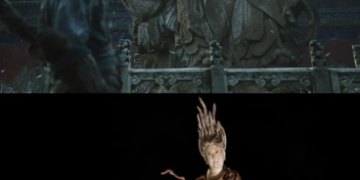Why Did Jesus Die on the Cross? The Most World-Changing Sacrifice Ever (with Extra Humor for Good Measure)
When pondering why Jesus died on the cross, we’re faced with the biggest plot twist in history—move over, Game of Thrones. For centuries, the question has baffled theologians, entertained dinner party conversations, and given Sunday school teachers grey hairs (which, I suppose, gives them a faint resemblance to Moses). But let’s cut to the chase: why would someone with the ability to walk on water, turn water into wine, and feed crowds with a glorified kid’s lunch, willingly end up nailed to a couple of planks?
The Cosmic Comedy: Death, Sin, and the Reason No One Gets Out of Gym Class
Let’s start with the basics—sin. According to the grand biblical script, humanity’s relationship with sin is like a never-ending subscription—no cancel button in sight. Kids know this because, as outlined in familiar Christian parenting guides, death storms into the storyline almost immediately after ‘Let there be light’. Genesis paints a grim picture: eat one forbidden fruit, and suddenly everyone’s terminal. Death is the ultimate spoiler. Yet, through the Old Testament, there’s a recurring glimmer of hope that Someone (capital ‘S’) will step up, fix the cosmic mess, and make things right.
Enter Jesus: the humble carpenter, divine comedian, and spiritual superhero. Unlike most cult heroes, he doesn’t save the world with a flashy sword or the Infinity Gauntlet—he chooses death. Not just any death, mind you, but the sort which inspired Renaissance art, influenced holiday calendars, and launched a thousand theological debates (now trending: #CrucifixionFashion). The Catholic Church, in case there was confusion, is pretty clear—redemption comes courtesy of Jesus and his solo act on the cross. Pope Leo affirms that Mary is the beloved intercessor but not a co-redeemer (she gets honorable mention, but the Oscar goes to Jesus).
The Easter Encore and Jesus, the Ultimate Stand-Up Guy
So, what’s the plot payoff? Crucifixion was the ultimate act of sacrifice—showcasing that God’s love doesn’t show up with chocolates and flowers, but with nails and an empty tomb. Easter, which commemorates the resurrection, marks the joyful end of Lent (forty days of spiritual calorie restriction). The central Christian claim is that with his death, Jesus paid the tab for humanity’s sins (yes, even yours, Karen, who double-dipped at the church potluck). The resurrection flips the grim expectation. It’s as if Jesus walks off stage after the hardest act and declares: “Ta-da! Sin, death, and evil are now tamed. Check, please!”
Why such sacrifice? Because, as Pope Leo XIV cheerfully puts it, Christ “tamed death,” transforming the dreaded enemy into “sister”—making cemeteries less ‘cities of the dead’ and more cosmic sleepovers until the resurrection. (No pillowfights, but plenty of hope.)
Facing Death: Humor Required, Hope Acquired
The Christian story is pretty honest about death—it’s everywhere. Like that one relative who brings up politics at every meal, death just won’t leave us alone. Society often tries to beautify or hide death, but Christian tradition prefers a head-on approach. Honest talks about death and its role in the grand story give believers (and their kids) a sense of soberness mixed with, yes, hope. From funerals filled with stories and laughter to church services encouraging prayers for the departed, humor and tears mingle because, in light of Jesus’ sacrifice, death isn’t the final punchline.
Take Jasen William Burton’s obituary—full of comical stories, Yankees vs. Royals banter, and a reminder that faith in Jesus turns even the saddest goodbye into the promise of an eternal family reunion (bring your own jokes and guitar).
Not Just a Nice Guy: Jesus—Superhero, Philosopher, and Reluctant Instagram Model
Modern technology, not content with leaving historical mysteries alone, has even tried giving Jesus a new face, courtesy of the Shroud of Turin and AI image generators. Whatever the results (not Norwegian, sorry), the message remains: Jesus’ sacrifice transcends race, nationality, and the questionable art direction of ancient painters. What mattered wasn’t the beard length or eye color—it was the act of complete self-giving, the willingness to bear the weight of every broken thing so that hope could finally stand center stage.
Easter, then, is not just about eggs, bunnies, and candy overdoses—it’s the annual celebration of how Jesus rewrote the ending for humankind. His death and resurrection mean the sting of death is gone—like a cosmic dentist removing the cavity of despair. The implications ripple into daily life: funerals are filled with stories and laughter, kids are taught to hope rather than fear, and, as Joe Rogan mused, Jesus’ willingness to die was the kind of gutsy decision that deserves global fascination (and maybe a podcast episode).
The Final Punchline: Why the Cross? Because Hope Had to Win
So, why did Jesus die on the cross? Because humanity needed a rescue mission that was both drastic and divine, a punchline that turned tragedy into triumph and sadness into the most enduring hope. Death may persist, but according to Christian faith, it’s now just intermission. The cross is the great cosmic joke—what looked like defeat became the world’s greatest victory.
And let’s be honest: if someone is ready to go through all that—to turn the worst into the best, the end into the beginning—it’s worth at least considering what kind of party that resurrection unlocked. Spoiler alert: it’s a reunion, and everyone’s invited. Just bring your best jokes, a healthy dose of hope, and perhaps, a willingness to believe in the biggest comeback in history.
A Toast to the Guy Who Made Cemeteries Dormitories
In closing, the reason Jesus died on the cross wasn’t so we could have more chocolate on Easter, but so the world could have a reason to laugh, hope, and live. Death, the world’s greatest downer, is now merely a nap before the party starts anew. That’s why the cross matters—because one man’s sacrifice flipped the story, and gave us a reason to get up, dust off our doubts, and keep telling the joke that ends in eternal life.





























